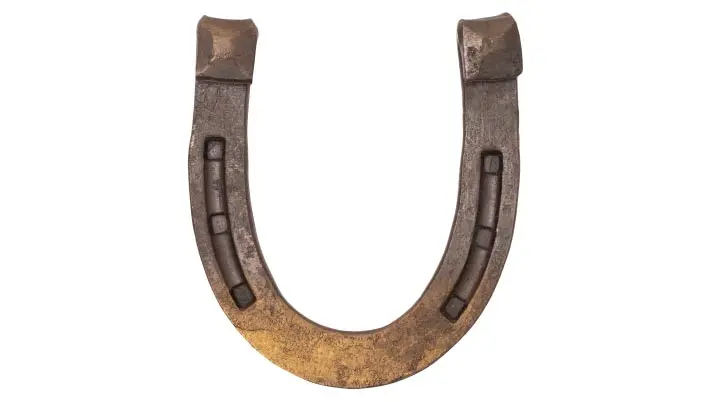Throughout human history, in every culture, individuals have adopted beliefs in symbols, superstitions and rituals that are said to bring good luck. There's generally no evidence to back up the effectiveness of these beliefs and practices but, in some cases, "proof" comes from stories that, over time, turn into "facts."
Gamblers, in particular, often look to talismans and other types of fantasy-driven behaviors to give them a psychological boost in their gaming pastime. It's a win-win situation – if they score a win, they can attribute it to their lucky charm. If they lose, they can say that they didn't "believe enough" or "have enough faith."
Grande Vegas reminds you that, as long as you gamble responsibly and don't exceed your bankroll, relying on a superstition can't hurt!
Superstitions and Rituals
Not every casino gambler is superstitious but of those who do rely on a specific charm or ritual to achieve good results, each person has his or her own. They involve:
Actions that make the individual feel good. Some people may repeat certain actions that they believe bring good luck, while others may focus on avoiding actions that they think might bring bad luck.
- Some gamers may engage in pre-game rituals such as listening to a specific song, placing a call to a parent, using a certain layout for equipment, etc.
- In some cases, the individual may believe that they need to change their luck so they move to a different game or sit in a different location.
- Betting "strategies" are a popular way to try to attract more payouts by placing specific types of bets after wins or losses
- A gamer might use a physical object like a lucky coin, a rabbit's foot or a four-leaf clover that has a reputation for bringing good luck. Some may use traditional symbols that are associated with prosperity, like horseshoes and little statues of elephants.
- Some players time their gaming sessions to "auspicious" times – for instance, on a birthday or when their horoscope forecasts good luck
- There are people who associate certain colors with good luck and they will wear clothes of that color during their gaming sessions. In Chinese culture, the color red is associated with luck and there are many gamblers who will make sure that they have something red on when they start playing for real money.
Most Common Gambling Superstitions
Gambling superstitions are as pervasive today as they were thousands of years ago. Some of the most common gambling superstitions include:
Counting Money
You won't ever see professional gamblers counting their money at the gaming table. Why? There's a strong belief that, if you count your money in front of everyone else, your luck will go downhill. As the well-known Kenny Rogers song advises, " You never count your money, When you're sittin' at the table, There'll be time enough for countin', When the dealin's done."
Temperature-Controlled Coins
The custom of rubbing a coin to heat it up or blowing on it to cool it down before putting it in a slot machine evolved in Vegas many decades ago but it's still done in many circles. It's a similar ritual to that of heating or cooling dice before a craps game. You might even see a player speaking to the coins or dice before placing them into play. There's no word on anything that the dice or coins might have said in return…..
Numbers
Different cultures have different relationships with numbers. What can be an auspicious number in Chinese society may have negative connotations in the West. Playing according to your belief in lucky and unlucky numbers can take many forms, from the days of the week that you visit the casino to the numbers that you choose, the bets that you make and the number of rounds that you play.
A few examples include
- 4 is considered unlucky in many East Asian cultures because the word for "four" sounds like the word for "death".
- 7 is widely seen as a lucky number in the West.
- 8 is a symbol of good fortune to many in East Asia, where it's associated with success and prosperity.
- The word for 9 in Chinese sounds like "long-lasting" or "durability" and the number is seen to be propitious.
- The number 13 is believed to be unlucky in Western societies and many people avoid it at all costs.
Lucky Charms
The idea that holding or wearing some kind of lucky charm can influence good fortune is very old and goes back thousands of years.
Ancient Egyptians wore ankhs and scarab beetle figurines for protection, while in Mesopotamia, special craftsmen inscribed symbols that were believed to hold magical powers on clay or metal talismans.
Other ancient civilizations where people relied on such charms were those of Phoenicia, Macedonia, Persia and Rome. In America, native peoples used dream catchers to filter out bad dreams and attract good dreams.
Some of the most popular lucky charms of today's casino gamers include:
- Four-leaf clovers – seen as lucky because in ancient Celtic lands, they were believed to ward off bad spirits.
- Items made with jade – jade is associated with luck and good fortune in China due to its perceived protective and auspicious qualities.
- Horseshoes – horseshoes have been seen as good luck charms for thousands of years. Roots of the belief date back to ancient times when the horseshoe's curved shape was seen to represent the moon by pagans. In addition, horseshoes were made from iron, a durable metal that was believed to ward off goblins, evil spirits and other malevolent forces.
Regardless of whether or not you're a believer in good luck rituals and talismans, be sure that you always stay within your budget while you're gambling. That's the best way to ensure a rewarding gaming adventure!


